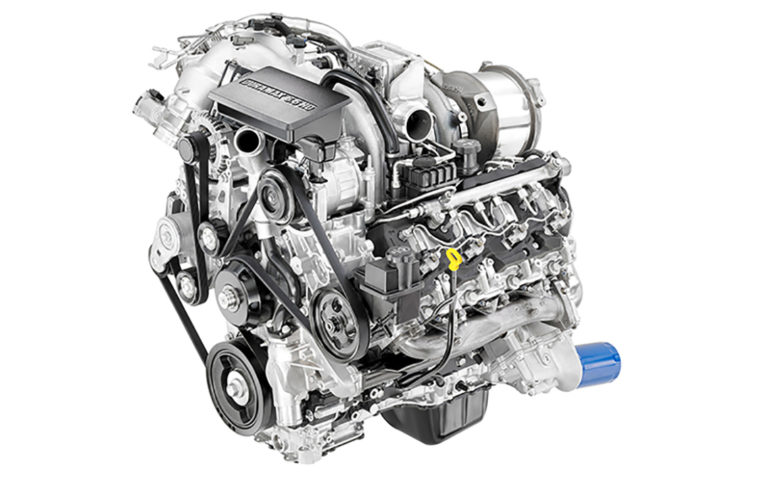2021 Cadillac Escalade, 2014–2015 Chevrolet Cruze (RPO LUZ), 2017–2019 Cruze (Gen II – VIN B) (RPO LH7), 2016–2021 Colorado, 2018–2019 Equinox (RPO LH7), 2017–2021 Express (RPO LWN), 2021 Suburban and Tahoe, 2016–2021 GMC Canyon, 2018–2019 Terrain (RPO LH7), 2017–2021 Savana (RPO LWN), 2021 Yukon and 2021-and-prior GM, Chevrolet and GMC light- and medium-duty trucks
TOP TIER™ Diesel fuel cleans and prevents injector deposits formed in high-pressure common rail systems, improves lubricity to protect fuel pump and injection system wear, and limits water and particulate contamination. Use of TOP TIER™ Diesel fuel helps maintain optimal engine performance and can reduce the cost of maintenance and downtime.
With the cold winter weather still hanging on prior to the arrival of spring, GM recommends the use of ACDelco Diesel Fuel Conditioner (Part# 19419985), which can help maintain optimal engine performance. Customers can also use Cold Flow Additive (Part# 19419986) for better cold flow operability, and Fuel Maintenance (Part# 19419458) to clean and prevent injector deposits.

In the event that your customers refueled with low-quality diesel gas, GM recommends adding ACDelco Fuel System Treatment Plus – Diesel (available through your GM Parts dealer) that can help clean engine deposits.
Common Diesel Fuel Concerns
Fuel Waxing/Icing: Use a low cetane fuel to help prevent fuel waxing or icing during extreme cold snaps.
Fuel Cleanliness: Water in the vehicle’s fuel system can lead to corrosion, increased metal wear, ice during cold weather, plugged filters or screens, increased degradation of fuel, partial hydrolysis of biodiesel (FAME) in diesel/FAME blends and microbiological growth.
Fungi Growth: Bacteria and fungi growth can occur in diesel fuel when there is water present, especially during warmer weather. The best prevention against bacteria and fungi growth is to use clean fuel that is free of water. If bacterial growth is found in the fuel system, the proper method of removal is to flush the fuel system using the appropriate Service Information procedures, replace the fuel-filter element and refill the tank with clean diesel fuel.
Low Cetane Number: The cetane number is one indicator of a diesel fuel’s ability to ignite. There are many indicators of overall fuel quality, such as cleanliness, specific gravity, volatility, viscosity, detergency, corrosion inhibiting abilities and lubricity. Increasing the cetane number alone is not a fix for poor quality fuel and will not increase engine performance.
Poor Lubricity: The 2.0L diesel engine and the 6.6L Duramax diesel engine are designed to operate on today’s low sulfur fuel without the use of additives. A fuel additive designed to increase lubricity is not a fix for poor quality or contaminated fuel.
Fuel Stability: Fuel stability and degradation may be a concern for diesel fuels, especially those containing biodiesel. The use of aftermarket stability additives to improve the quality of a degraded fuel is not a fix and use of such aftermarket stability additives is discouraged due to concerns of proper mixing and fuel compatibility.
Note: Any fuel additives used must not contain any metal-based additives, alcohol or other water emulsifiers that may compromise the water-removal effectiveness of the fuel filtering system.
For more information about TOP TIER Detergent Diesel fuel as well as a list of TOP TIER Diesel retailers, visit toptiergas.com.

